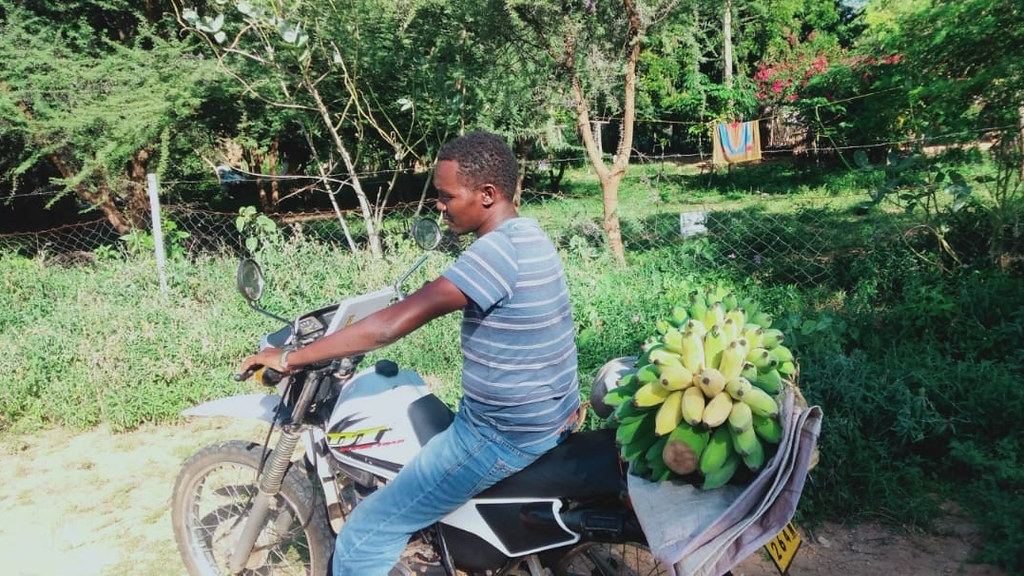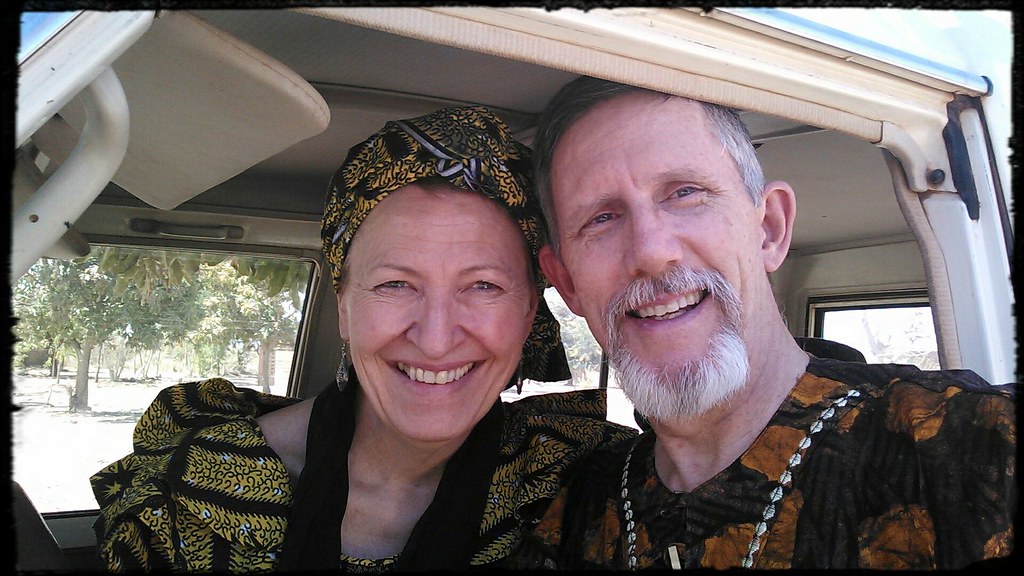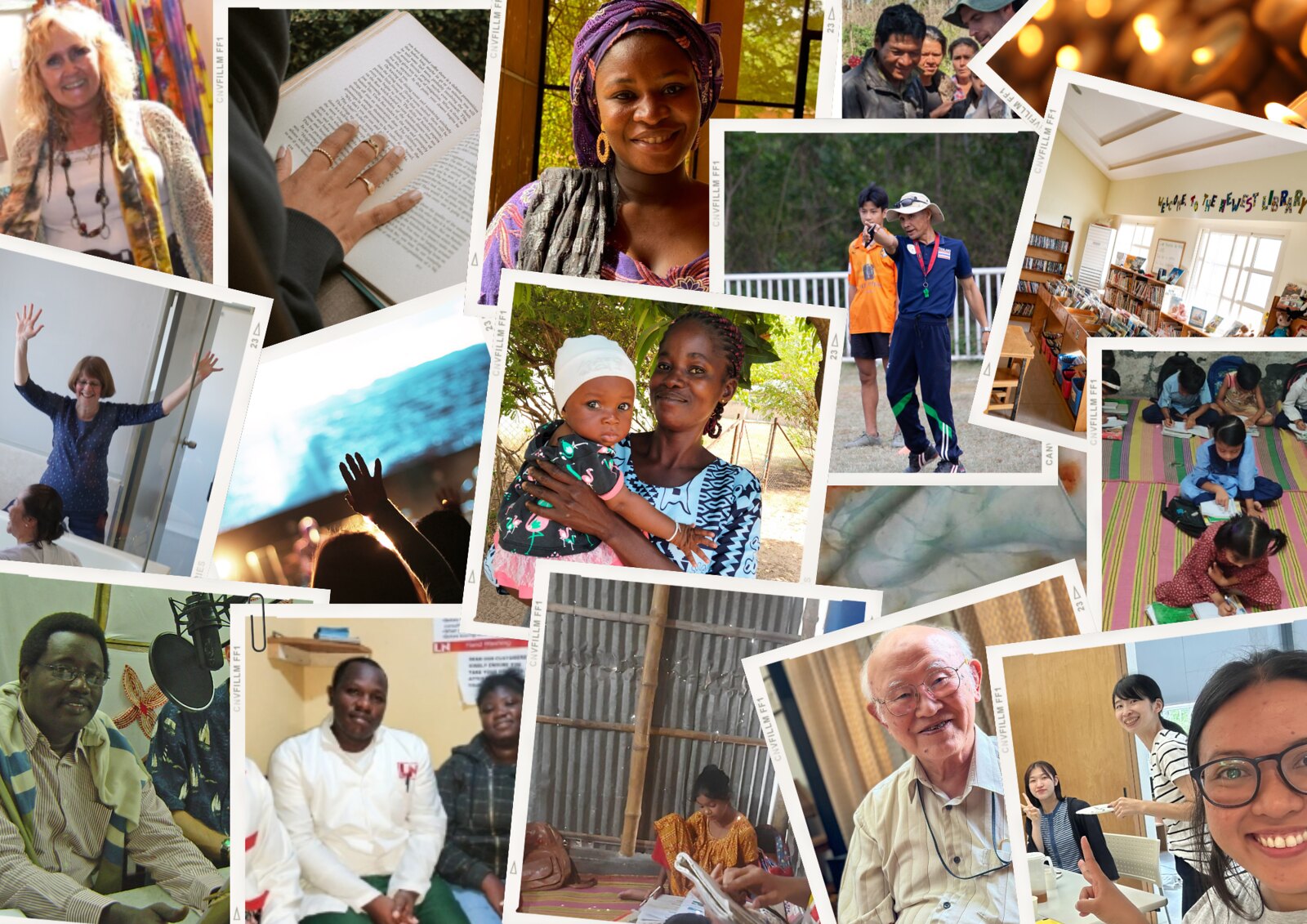The man who won't give up
By Tohru Inoue | Kenya in East Africa

Pastor Lesantan. Photo by SIM Stories East Africa.
Ngurunit, Kenya is pastoralist country. On a visit there, you will encounter herds of cattle, flocks of sheep and goats, and poultry. That is the community’s livelihood and has been for as long as people can remember.
But nestled in that group is Pastor Lesantan who’s thought of things slightly differently. His parents farm livestock, his siblings the same, but Lesantan isn’t interested in rearing animals. He has a love of growing things. He loves to nurture plants and watch them flourish. It’s an absurd project for a community that raises livestock. No one does agriculture here. You can’t.
But Lesantan didn’t let those voices dissuade him. He stuck to that quiet call in his heart.
Someone heard of his interest in growing things, and he managed to get help securing a small greenhouse – a modest thing that would allow him to start in this generally dry climate. He dug a shallow well and was able to irrigate his plants. He cared for his produce in that little greenhouse and, under his care, things grew.
He introduced people to watermelon. They hadn’t seen it before and were initially skeptical about it. So, he gave them away until people understood what they were and demand for them grew. He created a little market selling tomatoes, papaya and bananas. Mission workers serving there used to buy produce from him instead of buying things trucked in from 300km away.
The community was getting fresh produce and building healthier diets. Lesantan was creating a sustainable way of feeding people. His persistence was yielding fruit. People slowly started to see it. He invested everything into this enterprise of lifting up and nurturing his community.
Then the drought hit.



Herds of cattle perished throughout the country. Grazing lands disappeared and seasonal rivers dried up. International news reported that more than a quarter of Kenyans living in arid areas were facing drought. Areas that used to be pasturelands were now dustbowls. Livestock carcasses flashed on screens as the coverage of the drought spread. The visuals of bleached cattle bones summarised the whole situation.
Pastor Lesantan also lost everything. All the beautiful plants dried up and withered. He was left with nothing. People on the outside who were cheering for him and his vision to succeed, were crushed. They wanted him to prove it was possible. But that little greenhouse also fell victim to the relentless drought. The scorching winds sucked away every last bit of moisture.
You can’t grow things in a drought…
But, the man who has always done things a bit differently isn’t beaten. He will wait out the drought. As I write, the rains have returned. Some green is seen poking out of the dry ground. In this desert, it still finds a way.
Maybe this is what makes Lesantan a good pastor. He’s interested in taking the dry ground and finding some good soil in there – planting seeds and trusting God for rain and growth. God will make the arid places green again.
Even in the wake of a drought, God is watering Pastor Lesantan’s hope for the future. It’s still there in the greenhouse of God’s grace. God, too, loves watching things grow. And he’s taking care of this little seedling in the desert. And what God tends may transform the area into an oasis. If anyone can, it’s God. You can be sure of that.
Pray
•Pray for the partnership SIM has with pastors like Lesantan.
•Pray that there would be a spiritual harvest from the seeds Lesantan is planting in hearts and lives.
•Pray God would bring the rains so desperately needed, to bless the faith steps of Lesantan, to provide an addition to the physical diet in the community.
Related stories

Young women from rural Peru find discipleship and belonging in the city
As rural young women move to Peru’s cities for study or work, they face a world full of pressure, distraction, and isolation. Mission worker Lizzie is walking alongside them; offering friendship, discipleship, and a reminder of their worth in Jesus.

In Carrie’s classroom, Jesus is shaping hearts and minds for his kingdom
When mission workers with young families leave their home country, a major concern is how their children will get on. While the parents are out serving, the kids need stability, education, and spiritual nurturing. That’s where teachers like Carrie come in. Originally from Kansas, Carrie now teaches at a mission school in Liberia, part of Dakar Academy in Senegal, shaping young hearts and minds for God’s kingdom.

Ken & Gwen Baker have spent 40+ years engaged in mission work and adventures with God
Ken and Gwen Baker have retired after 43 years of faithful service with SIM — a life devoted to God, to their teammates, and to equipping others for ministry. They spent decades planting churches in West Africa, fostering intercultural ministry, and shaping mission training that continues to impact workers worldwide. As they step into a new season of life, their story serves as a powerful reminder of how God uses ordinary people, willing to follow his call, to build His church and transform lives.


